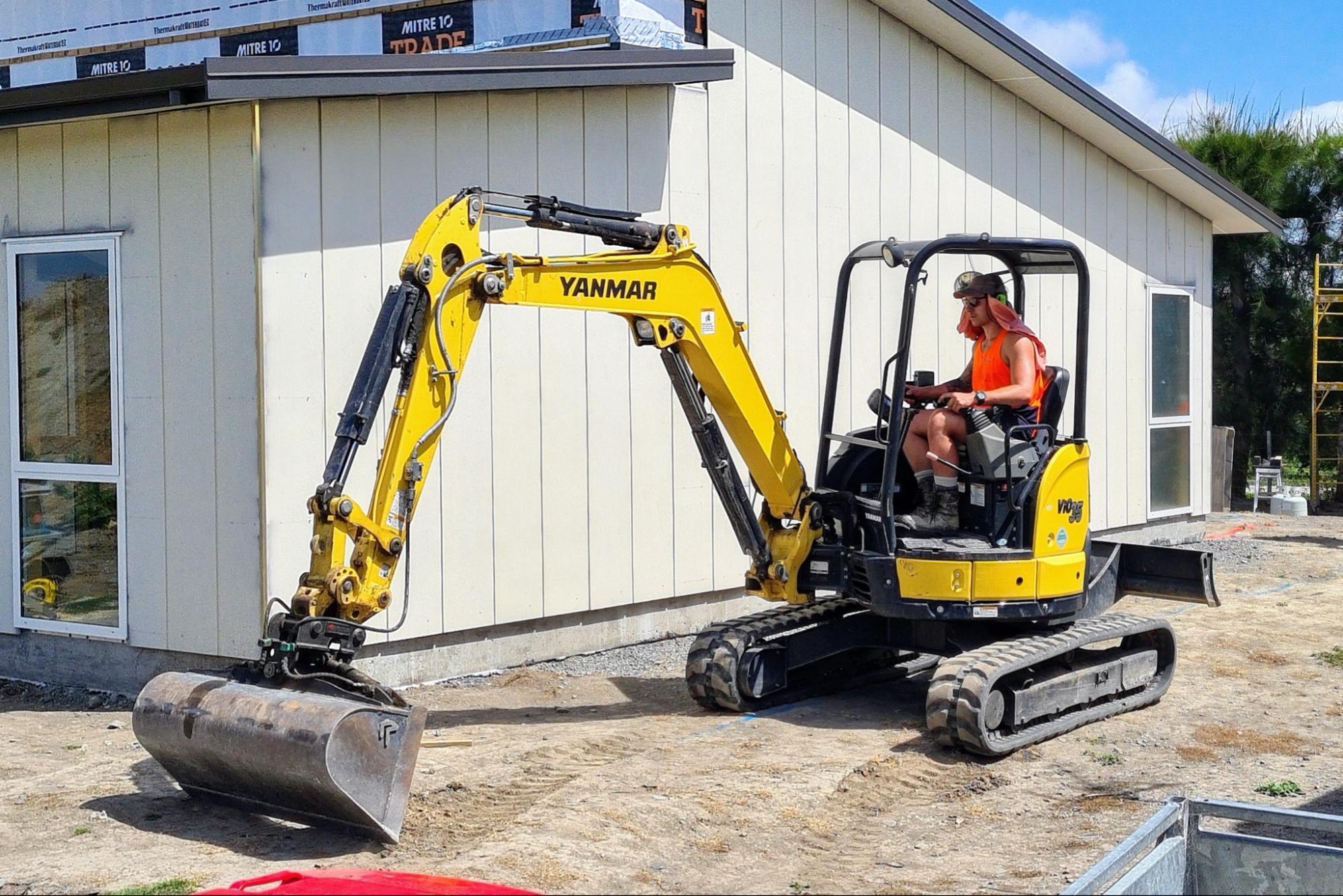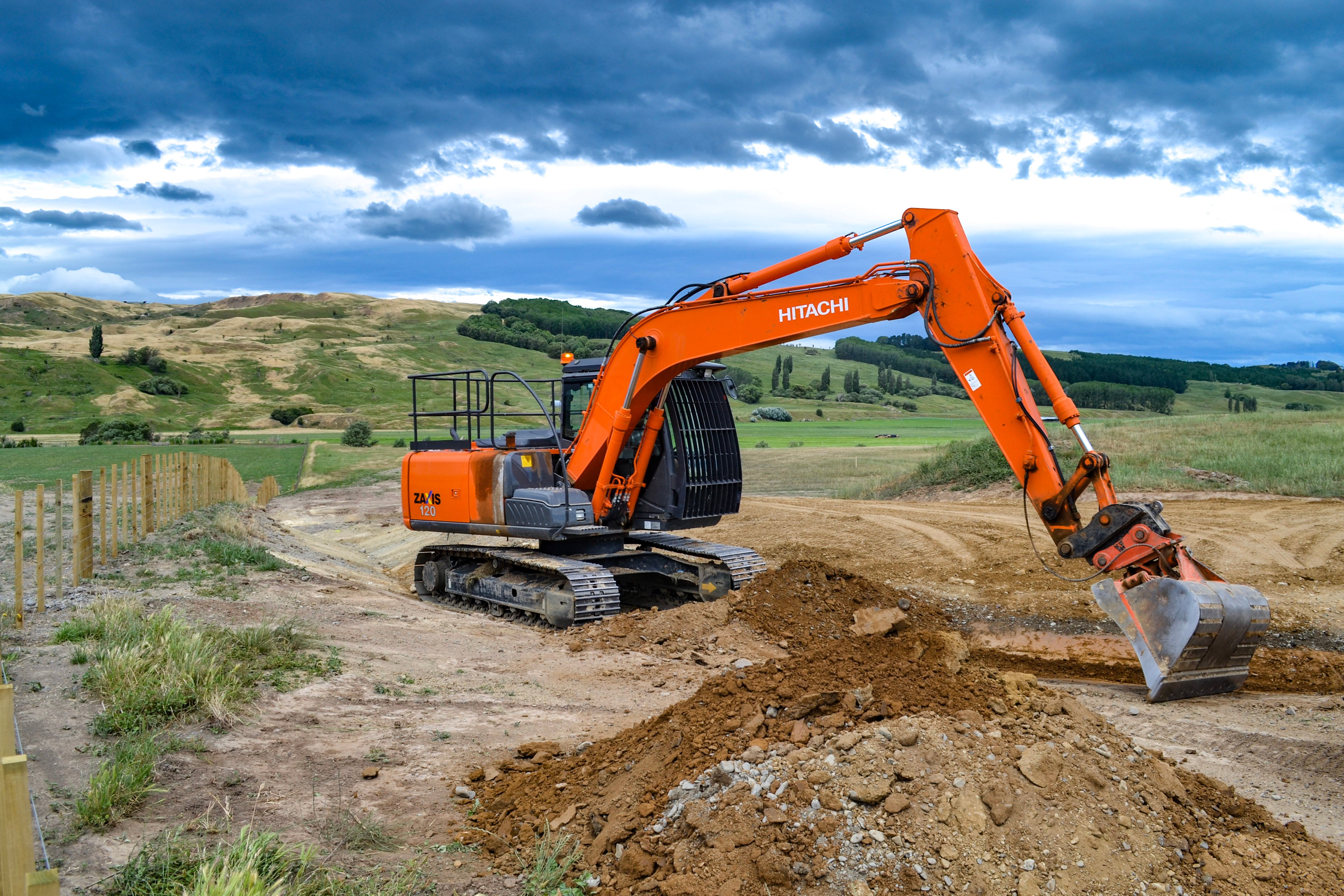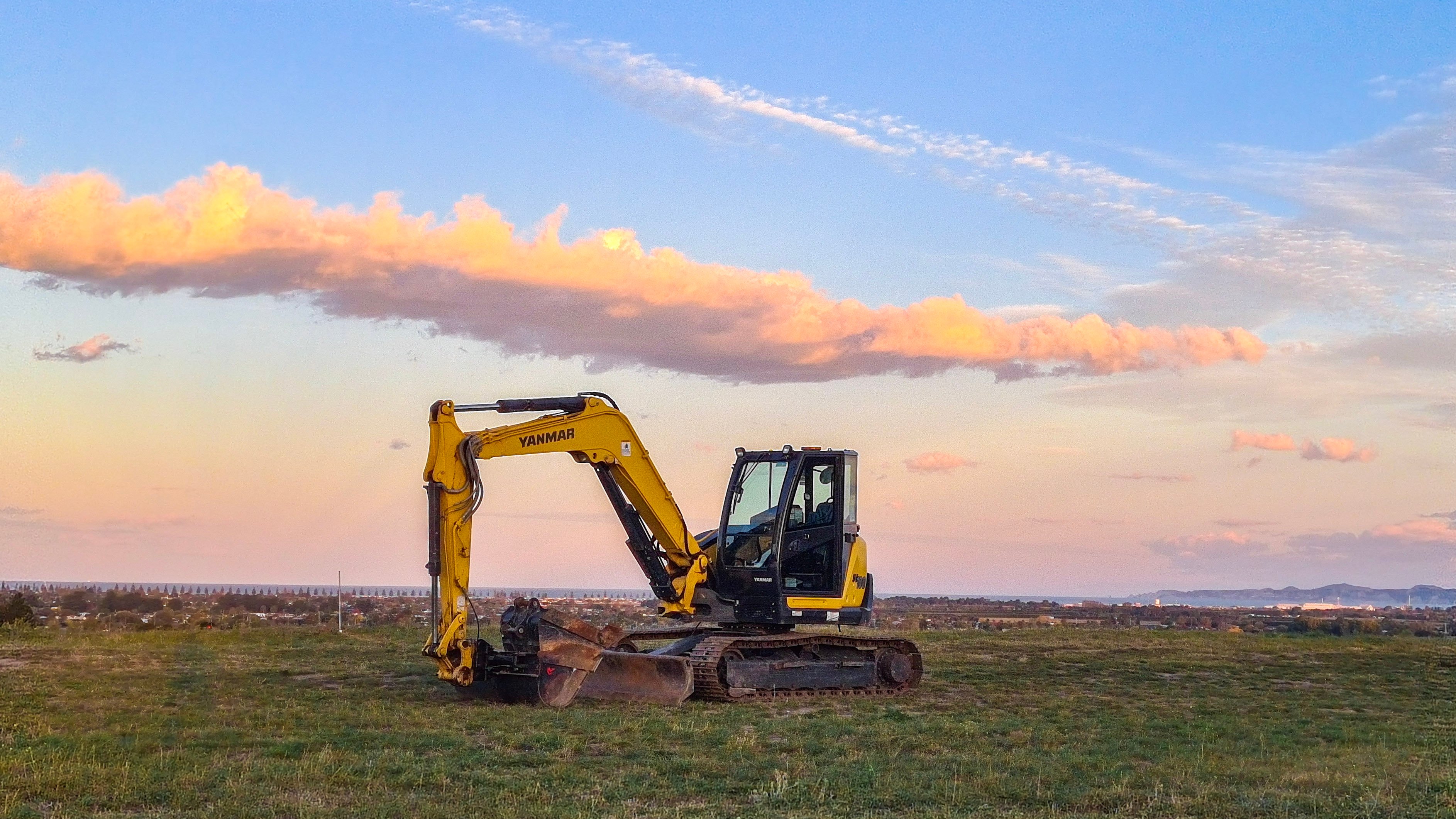Latest News
Everything you need to know about Excavators.
Excavators come in a range of makes and models and tend to be selected for practicality, reliability and the range of functions they can fulfil. Excavators are also known as Diggers, and sometimes they are just referred to by the brand that you might prefer to hire. Here’s the lowdown on a big piece of machinery that has a lot of uses.

What is an excavator?
An excavator is a piece of heavy machinery that has a lot of power and therefore lends itself to heavy construction. If you need to dig; demolish; build up earth, grade or landscape it; dredge; drive; drill or handle heavy material - a digger is the right tool for the job.
Hire an Excavator from Allways Hire today. We offer a range of small to medium size Yanmar and Hitachi Excavators and can help you choose the right model for the job. Explore our range here.
There are a huge range of options when it comes to hiring or buying an excavator. The most important thing is to match the power and function of your excavator to the job you have to get done. The right size of machine - neither too big or small - can make a big difference to your efficiency. It’s also important to make sure that the attachment you need to use is suited to the machine you want to hire. Let’s take a look at the different types of excavator available.
What is a standard excavator?

A standard excavator offers a great combination of power and maneuverability.
A standard excavator consists of a boom, dipper arm and bucket attached to the machine. The whole machine can rotate at 360 degrees and run on either wheels or tracks - you choose which works best for the terrain you’re going to be working on. A standard excavator has low ground pressure and - on tracks - is well suited for soft terrain .
Excavators come in a huge range of sizes that have been developed so that you always have the right machine for the job. Model sizes start at 0.8T and go all the way up to 889T Excavators (the Bucyrus RH400 which is the world’s biggest excavation machine and is used in mining).
Wheeled excavators vs. excavators on tracks

Excavators on tracks are great for working on soft surfaces.
Choose wheels over tracks when you’re working on hard surfaces like concrete or asphalt. As a rule, wheels are better suited to level surfaces too - you may prefer to use tracks if you’re working on a sloping site. Tracks can easily mark or damage concrete so if you’re working in roading or construction then you may prefer to use a wheeled excavator. Wheeled excavators can also easily move from one location to another whereas a tracked excavator will need to be transported.
What is a long reach excavator?
Just like any other tool, sometimes you may need a longer reach from your excavator in order to get to the job that needs to be done. That’s when you may need to use a long reach excavator. Just as you would expect from the name, the long reach excavator features a longer arm. That means it’s easier to tackle harder to access jobs like work within waterways or demolition jobs.
What is a drag line excavator?
A drag line excavator is used on large scale civil projects such as canal dredging and mining. This is another type of excavator that has evolved because it has a very specific job to do. Drag line excavators feature a bucket system that allows the operator to drag a bucket using wire ropes and chains. Drag line excavators are very powerful and allow for large scale excavation and digging.
What is a backhoe?
A backhoe is a heavy equipment vehicle consisting of a digging bucket on a two-part articulated arm attached to the rear of a tractor or front end loader. It has a swivelling seat so the operator can face the right direction at all times.
Backhoe loaders are general-purpose machines and can replace multiple specialist machines. Where the backhoe does lack is in rotation where it usually only offers around 200 degrees of turn vs. the 360 degree manoeuvrability of an excavator.
What is a suction excavator?
A suction excavator is a precision excavation tool that uses high pressure water or air to blast material loose before sucking debris clear with a suction pipe. Suction excavators are ideal in locations where there may be existing underground pipes or cables because they allow the operator to safely excavate without damaging existing infrastructure.
Hire an Excavator from Allways Hire today. We offer a range of small to medium size Yanmar and Hitachi Excavators and can help you choose the right model for the job. Explore our range here.
What kind of tools can you attach to an excavator?
If you’re hiring an excavator then it’s because you have a job to do and that’s going to determine the tools you choose as well. There are a wide range of tools and attachments that make an excavator even more effective on site. Here are some of the most popular.
The right bucket for the job
Buckets are one of the most standard excavator attachments but that doesn’t mean they don’t deserve a closer look. You can choose from slim or wide buckets and opt for with or without teeth depending on the job you need to get done. Buckets can be used for trenching, scooping, levelling and lifting of materials. If you’re working on slopes or shaping banks for landscaping then you could opt for a tilting bucket for extra precision.
Add a thumb and get more from your excavator bucket
A thumb attachment helps to secure the material you’re excavating and so increases the capacity of your bucket. Rather than relying on gravity to keep material down a thumb will hold it in place, allowing you to stack your bucket fuller. Thumbs are ideal if you need to grip logs, pieces of rocks or concrete or larger objects.
Do you need an auger for your excavator?
If you’re using your excavator to dig a hole for planting then an auger allows you to do the job with precision. Whether you’re planting fence posts, building supports or trees, an auger gives you consistency and accuracy and makes it easier to dig to depth in any type of soil. Auger sizes range from 100mm to over 2000mm so it’s easy to pick the right size for the job in hand.
Speed up your demolition with a hammer
No surprises here. If you want to smash something then adding a hammer attachment to your excavator gives you the ability to focus its power into some real destruction. It’s a must have for any demolition project involving concrete.
Tear through your tasks with a ripper attachment
If you need to break through something then a ripper is a great tool to do just that. It attaches to your excavator and makes it possible to quite literally rip apart whatever it comes into contact with. That makes it a great tool for tearing hard or frozen ground or demolishing hard surfaces.
Make an impact with a pile driver attachment
%20small.jpg?width=1059&name=EDITED%20%20Fence%20Pro%20Pile%20Driver%20(7)%20small.jpg)
The Fence Pro Pile Driver in action.
If you need to drive a pole, pile, or post into the ground then the pile driver attachment gives you the brute force you need to make an impact. Typically used in construction this attachment is a great fit if you want to build a shelter belt or construct building supports.
Connect it all up with the right coupler
Couplers are also known as quick couplers, and are a handy attachment that allows you to easily switch between other working attachments like buckets and augers. Add a coupler and you will find that it’s quicker and easier to connect and disconnect attachments. You will also be able to choose from a range of rotating or tilting functions to give you even more control when you put your attachments to work.
Not sure what machine’s right for you? Allways Hire has a team of experts ready to help you choose the right excavator and accessories for the job. Call us or enquire online today.
Everyone knows that it’s much easier to get the job done if you have the right equipment and a good team. Understanding what’s available is a good starting point. Now you’re ready to dig deeper and choose the right model for you.
If you’re buying an excavator it’s worth considering whether you would like to buy brand new or second hand and talking to your dealer and letting them know how you plan to use it. They can help you match the right size and type of excavator to your job so you can enjoy great value from your purchase.
You can often also pick up second hand excavators from hire companies like Allways Hire. We regularly update our fleet to keep it new so if you’re thinking of buying - call us today and find out what we have available.
Thinking of hiring? Read our blog on why hiring is sometimes a smarter option when you’re looking for the next piece of equipment. If hiring seems like the right option for you then contact our team. They are experts in our equipment and understanding which excavator is right for the job. We also have a comprehensive health and safety programme and can give you some great pointers for efficient operation too.

